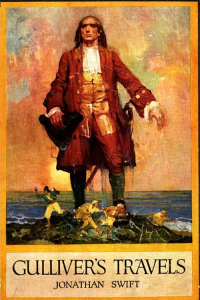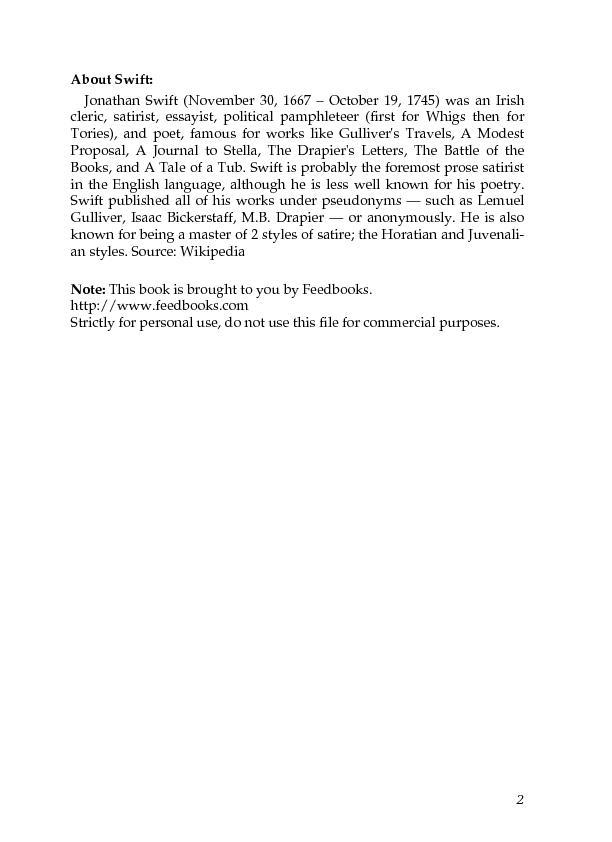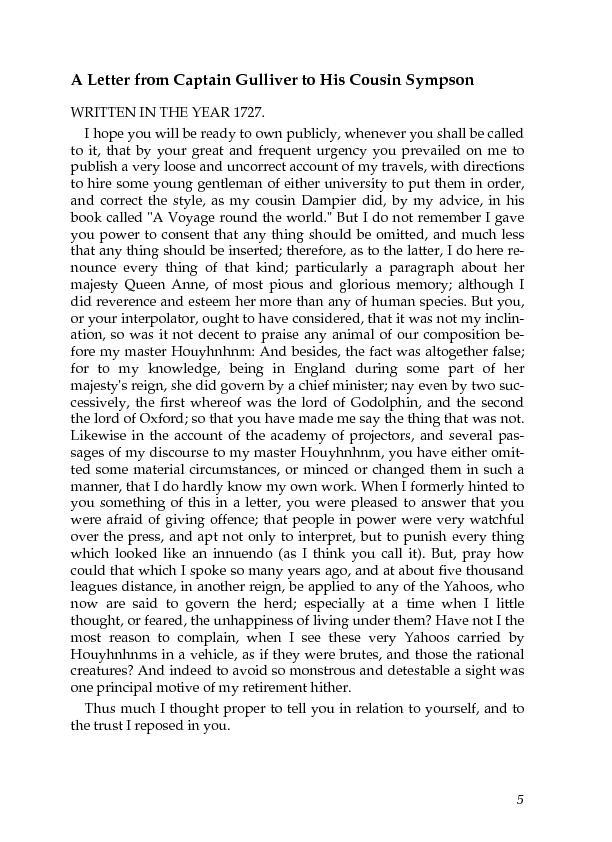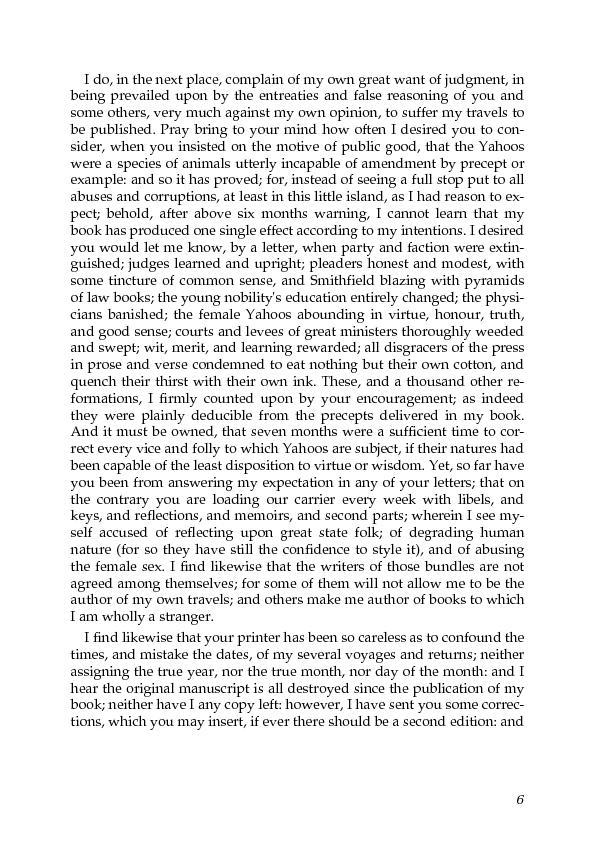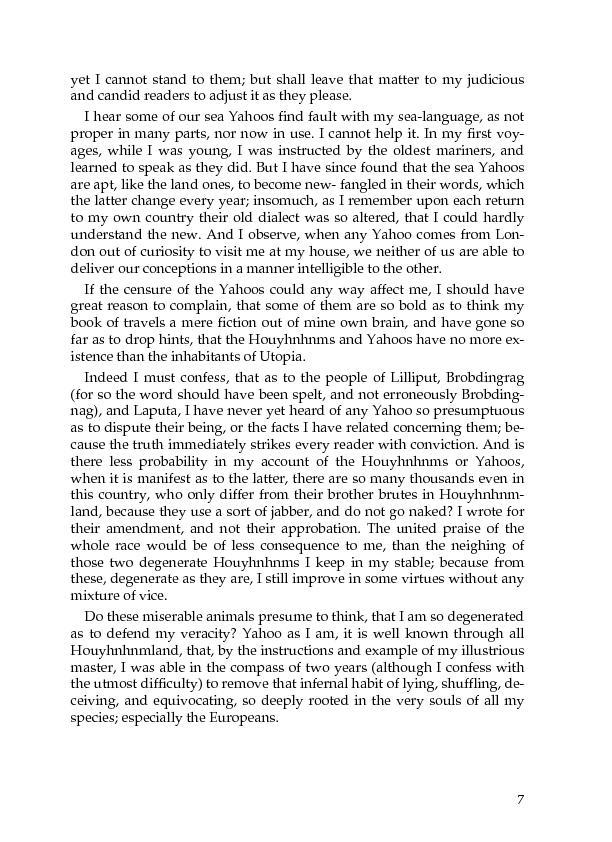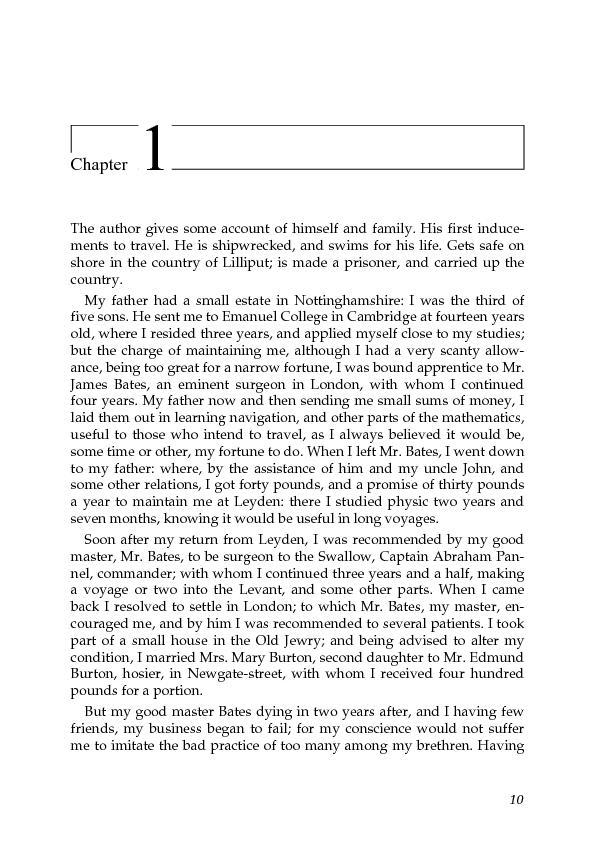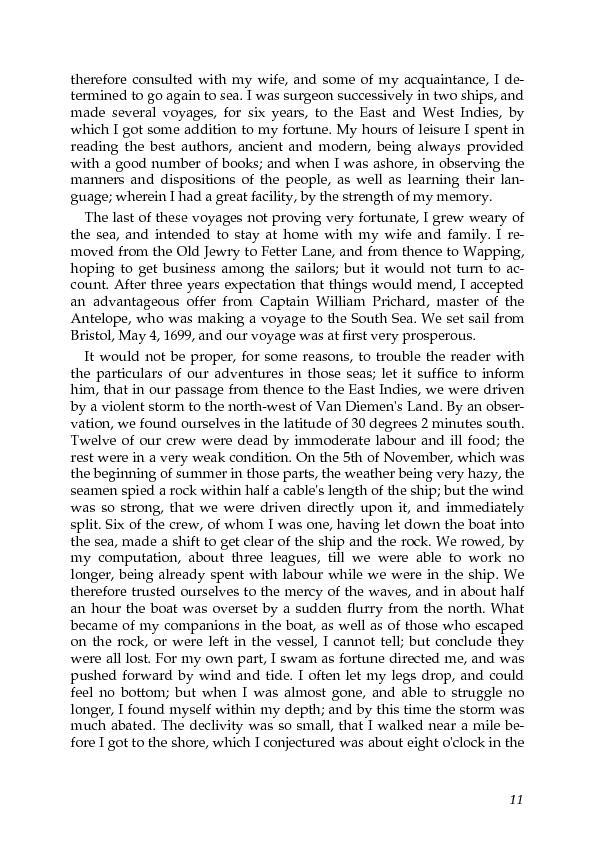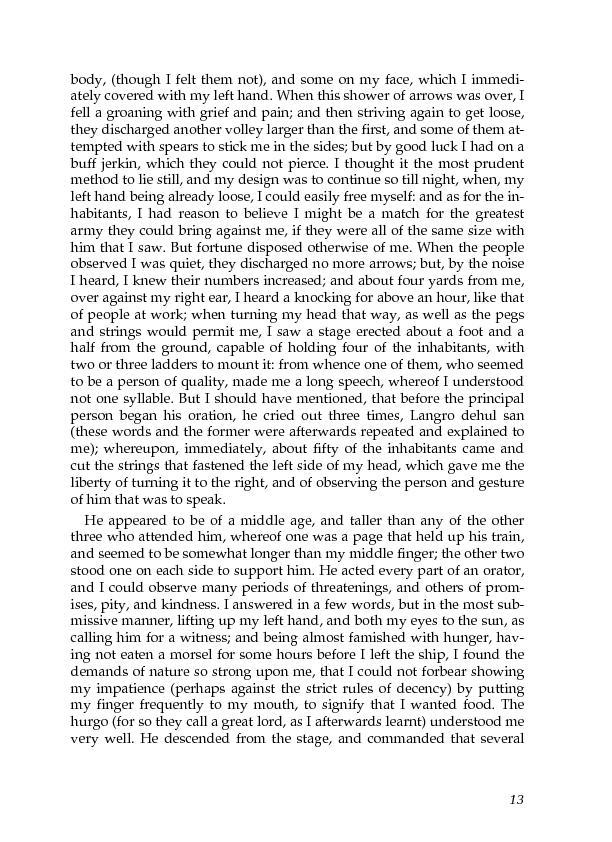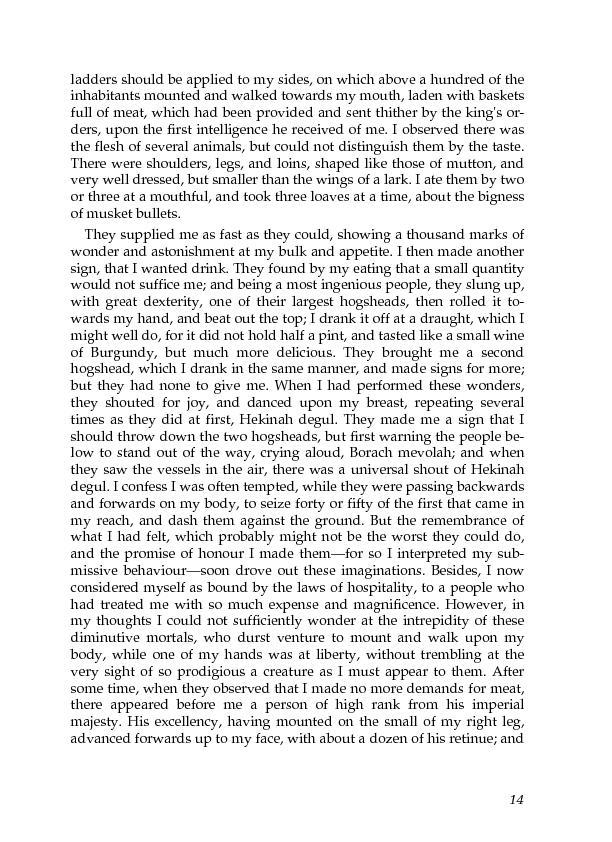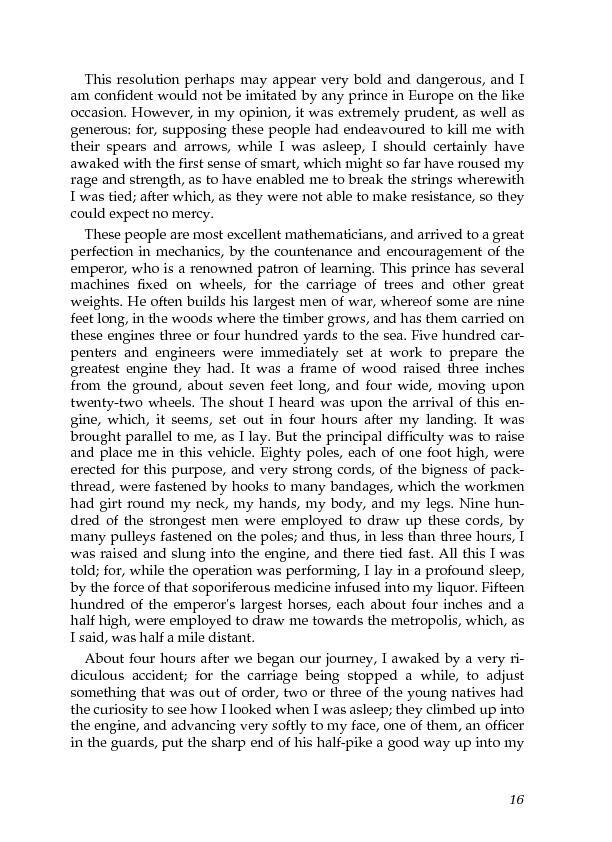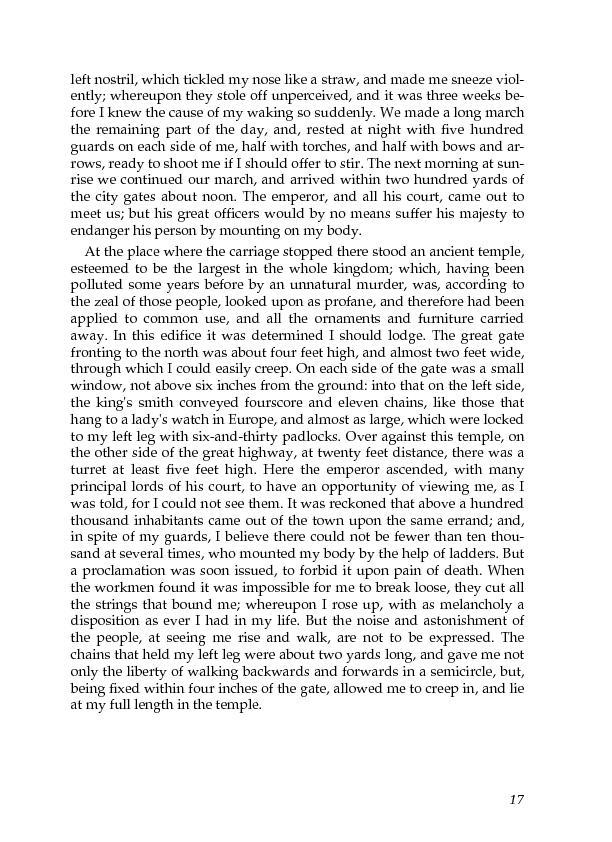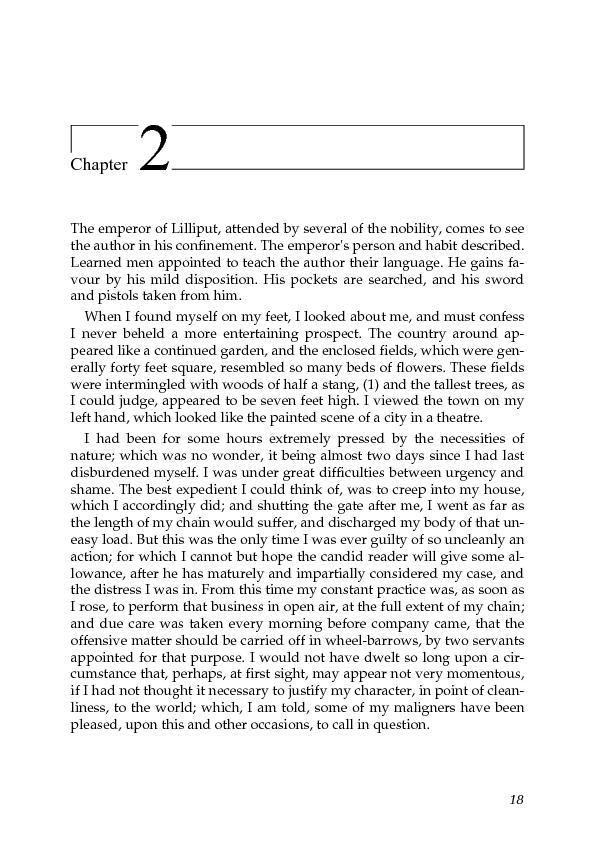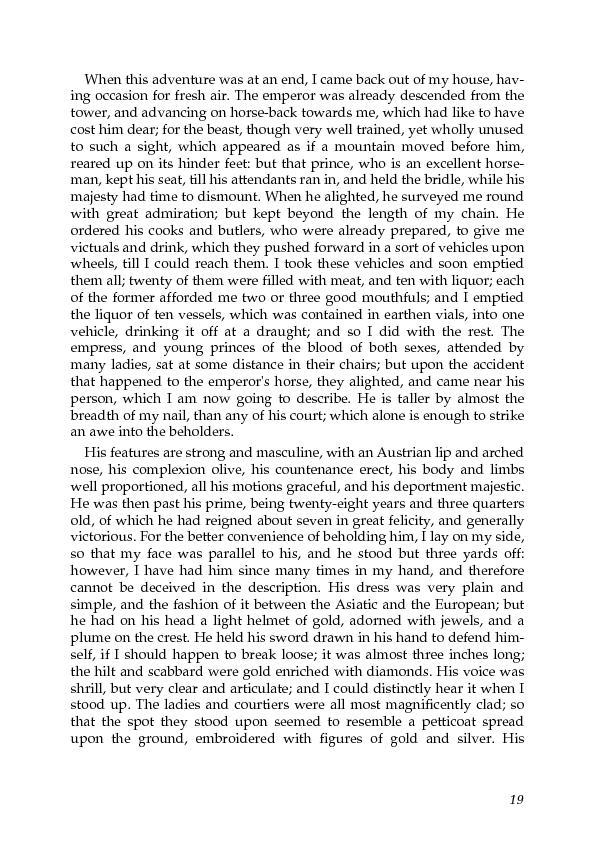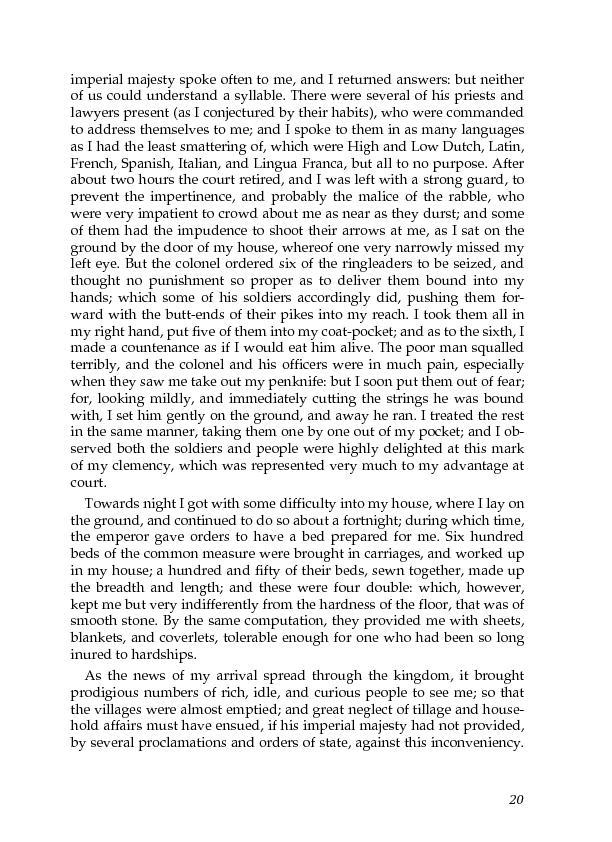Gulliver's Travels
Gulliver's Travels
By: Jonathan Swift
From the preeminent prose satirist in the English language, a great classic recounting the four remarkable journeys of ship’s surgeon Lemuel Gulliver. For children it remains an enchanting fantasy; for adults, a witty parody of political life in Swift’s time and a scathing send-up of manners and morals in 18th-century England.
Title information
Although in its abridged form Gulliver's Travels (1726) is known as a classic children's adventure story, it is actually a biting work of political and social satire by an Anglican priest, historian, and political commentator. Anglo-Irish author Jonathan Swift parodied popular travelogues of his day in creating this story of a sea-loving physician's travels to imaginary foreign lands. Structurally, the book is divided into four separate adventures, or travels, which Dr. Lemuel Gulliver undertakes by accident when his vessel is shipwrecked or taken over by pirates. In these fantastic tales, Swift satirizes the political events in England and Ireland in his day, as well as English values and institutions. He ridicules academics, scientists, and Enlightenment thinkers who value rationalism above all else, and finally, he targets the human condition itself. Like all of Swift's works, Gulliver's Travels was originally published without Swift's name on it because he feared government persecution. His criticisms of people and institutions are often scathing, and some observers believe he was a misanthrope (one who hates mankind). Other critics have suggested that while Swift criticized humans and their vanity and folly, he believed that people are capable of behaving better than they do and hoped his works would convince people to reconsider their behavior. Swift himself claimed he wrote Gulliver's Travels "to vex the world rather than divert it." He succeeded in that aim, as the book is considered one of the best examples of satire ever written. Swift's sharp observations about the corruption of people and their institutions still ring true today, almost three hundred years after the book was first published.
Jonathan Swift
Jonathan Swift (30 November 1667 – 19 October 1745) was an Anglo-Irish[1] satirist, essayist, political pamphleteer (first for the Whigs, then for the Tories), poet and cleric who became Dean of St. Patrick's Cathedral, Dublin.
He is remembered for works such as Gulliver's Travels, A Modest Proposal, A Journal to Stella, Drapier's Letters, The Battle of the Books, An Argument Against Abolishing Christianity, and A Tale of a Tub. Swift is probably the foremost prose satirist in the English language, and is less well known for his poetry. Swift originally published all of his works under pseudonyms—such as Lemuel Gulliver, Isaac Bickerstaff, M.B. Drapier—or anonymously. He is also known for being a master of two styles of satire: the Horatian and Juvenalian styles.


